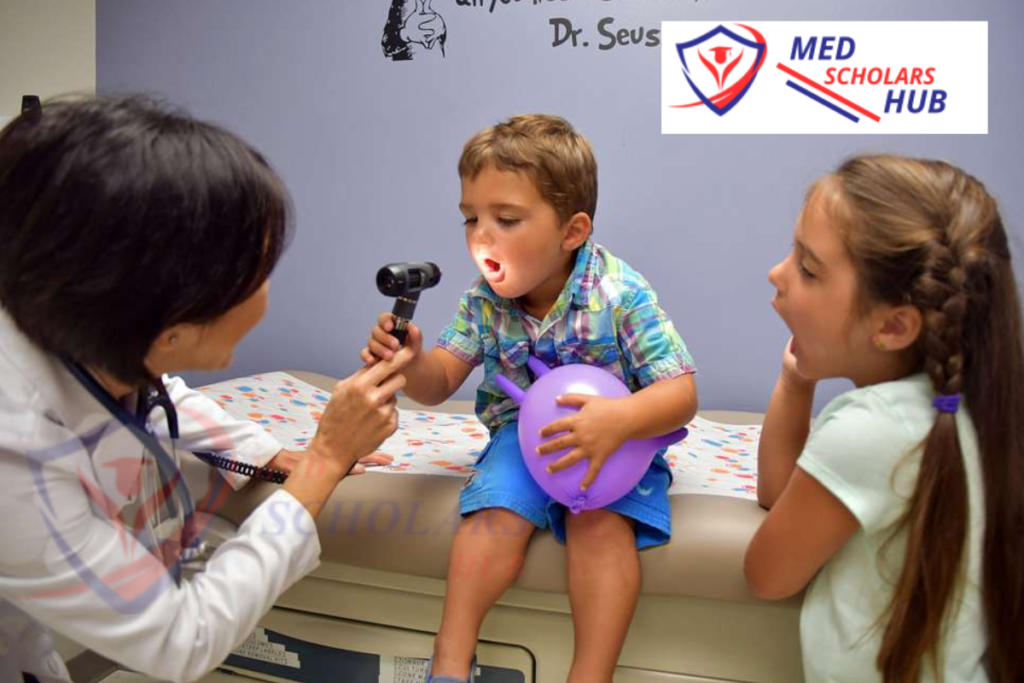What was the Need to Create Pediatrics a Separate Field for Childcare?
The Emergence of Pediatrics
There was a period when the general concerns of adult health sometimes eclipsed the health and well-being of children. Children’s susceptibility to illnesses and infections often perplexed the medical professionals since the adult-centric medical knowledge of the past failed to take into account the special requirements of the youngest members of society. Medical practitioners had not come to the fundamental conclusion that a distinct area needed to be established with the primary purpose of caring for and treating children until the late 18th century. This ground-breaking field of medicine, later known as pediatrics, was a crucial turning point in healthcare, resulting in improved child welfare and the advancement of society as a whole.

1. The Perplexing Enigma of Childhood Ailments
As medical knowledge developed throughout time, it became clear that children faced different health issues than adults. Improper management of Children’s diseases was frequent due to a lack of awareness of these distinctions, which increased the death rate for children. Physicians faced a perplexing task because to the frequency of illnesses including measles, mumps, whooping cough, and other pediatric infections. Parents and medical experts alike experienced great grief as a result of the inability to understand the distinctive features of these illnesses in children.
2. The Gentle Art of Healing: Tailoring Medicine for Young Patients
The concept that children may get adult medical treatments in a similar way was the believe of the ancient notion that the human body is a small duplicate of the cosmos/universe.
This strategy, however, backfired since children’s bodies responded differently to treatments and pharmaceuticals intended for adults.
It became clear that particular, age-appropriate doses and treatment regimens were required, underscoring the need of working in a profession that understood the special anatomical and physiological needs of young patients.
3. The Visionary Pioneers of Pediatrics
Visionaries in the medical profession began promoting the creation of a separate field of medicine that only focused on the health and welfare of children as the 18th century progressed. Dr. Charles West, a French doctor, was the most prominent of these pioneers. Modern pediatrics came into being on his seminal book, “Lectures on the Diseases of Infancy and Childhood,” in 1848. Dr. West stressed the need of understanding that kids weren’t just little people and required specialized care to suit their unique requirements.
Read more about medical education options here: https://medscholarshub.com/category/medicine-education/
4. Unraveling the Mysteries: Understanding Pediatric Pathology
The growing understanding of pediatric pathology was a crucial factor that necessitated the establishment of pediatrics as a distinct science. It was a ground-breaking discovery to realize that some illnesses were specific to children and developed differently from their adult counterparts. For accurate diagnosis and treatment, conditions including croup, congenital heart abnormalities, and pediatric leukemia required particular knowledge and experience.

5. Nurturing the Future: Emphasizing Preventive Care
The emphasis on preventative care that pediatrics placed on healthcare is among its most important contributions. Recognizing that many childhood illnesses were preventable through vaccinations, nutrition, and early detection of potential issues, pediatricians became advocates for disease prevention rather than just curative measures. This strategy was crucial in lowering newborn death rates and improving the general health of the child population.
6. The Growing Role of Pediatrics in Public Health
Children’s health encountered additional difficulties as industrialization and urbanization increased. A thorough strategy for ensuring children’s safety became mandatory due to the rise of contagious illnesses, congested living situations, and contaminated settings. Pediatricians played an important role in public health campaigns, speaking out for better living circumstances, clean water, and sanitary conditions to safeguard society’s most vulnerable citizens.

7. Child Labor and Social Reform
Child labor was prevalent in the 19th and early 20th centuries. It forced children to dangerous working conditions and depriving them of sufficient education and healthcare. The development of pediatrics as a distinct discipline and the establishment of social reform groups aimed to defend children’s rights. Pediatricians were crucial in bringing attention to the negative effects of child labor on children’s physical and mental development. They further underlined the value of child welfare and education.
8. Pediatrics as an Evolving Science: Research and Specializations
Research aiming at better comprehending the intricacies of juvenile disorders and expanding medical knowledge increased dramatically as pediatrics gained popularity. Pediatrics started to become more specialized, with an emphasis on subspecialties such pediatric cancer, cardiology, pulmonology, and neurology. The odds of recovery for young children greatly increased by this concentrated approach. This particular approach enabled more accurate diagnosis and specialized therapies.

9. The Psychosocial Aspect of Pediatrics: Treating the Whole Child
Pediatricians were concerned about children’s emotional and psychological health in addition to their bodily wellbeing. A pediatrician’s responsibilities went beyond the exam room; they became into children’s confidantes who provided comfort and assistance in difficult situations. This comprehensive approach to therapy aided the entire growth and happiness of the children as patients.
10. A Brighter Future: The Legacy of Pediatrics
An important turning point in the history of medicine was when pediatrics became a distinct branch of medicine. Pediatricians have made a substantial contribution to a large decline in childhood mortality. These contributions also include an increase in the quality of life for children by recognizing the special children’s requirements. Pediatrics also carefully check adapting in accordance with children’s needs. Their commitment to research, activism, and preventative care has molded a healthier and more kind world for future generations.
A Journey of Care and Compassion
The development of pediatrics as a distinct discipline of study in the realm of child care was a significant accomplishment. Pediatrics has developed into a vibrant, interdisciplinary discipline with a future-focused perspective. This future-focused perspective ranges from the mystifying riddle of juvenile illnesses to the visionary pioneers who championed the cause. Pediatricians have had a profound impact on healthcare by recognizing the particularities of childhood illnesses, promoting preventative treatment, and treating kids as unique persons with specific needs. The future of mankind will become brighter and healthier as long as pediatrics’ legacy thrives and the health of children is prioritized.




